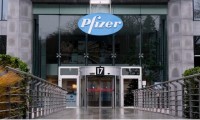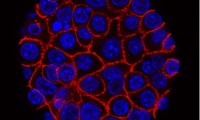-
Nestlé divests peanut allergy treatment Palforzia to Stallergenes Greer
- Source: drugdu
- 233
- September 7, 2023
-
Amgen and Horizon Therapeutics settle FTC lawsuit
- Source: drugdu
- 173
- September 6, 2023
-
Man-made antibody successfully prevents organ rejection after transplantation
- Source: drugdu
- 119
- September 1, 2023
-
Pfizer, BioNTech Challenge Moderna’s COVID-19 Patents with USPTO
- Source: drugdu
- 111
- September 1, 2023
-
Novocure Fails Phase III Ovarian Cancer Trial for Tumor Treating Fields Therapy
- Source: drugdu
- 277
- August 31, 2023
-
ARAMIS trial finds no benefit of anakinra in acute myocarditis
- Source: drugdu
- 113
- August 31, 2023
-
New MD Anderson Research Uncovers Drug Combo That Could Eliminate Pancreatic Cancer Tumors
- Source: drugdu
- 122
- August 29, 2023
-
Pfizer, Moderna Target Emerging Variants with Updated COVID-19 Shots
- Source: drugdu
- 193
- August 22, 2023
-
US study finds potential new way of improving immunotherapy for tumours
- Source: drugdu
- 130
- August 21, 2023
-
FDA approves Talvey for heavily pre-treated multiple myeloma
- Source: drugdu
- 126
- August 21, 2023
your submission has already been received.
OK
Subscribe
Please enter a valid Email address!
Submit
The most relevant industry news & insight will be sent to you every two weeks.













